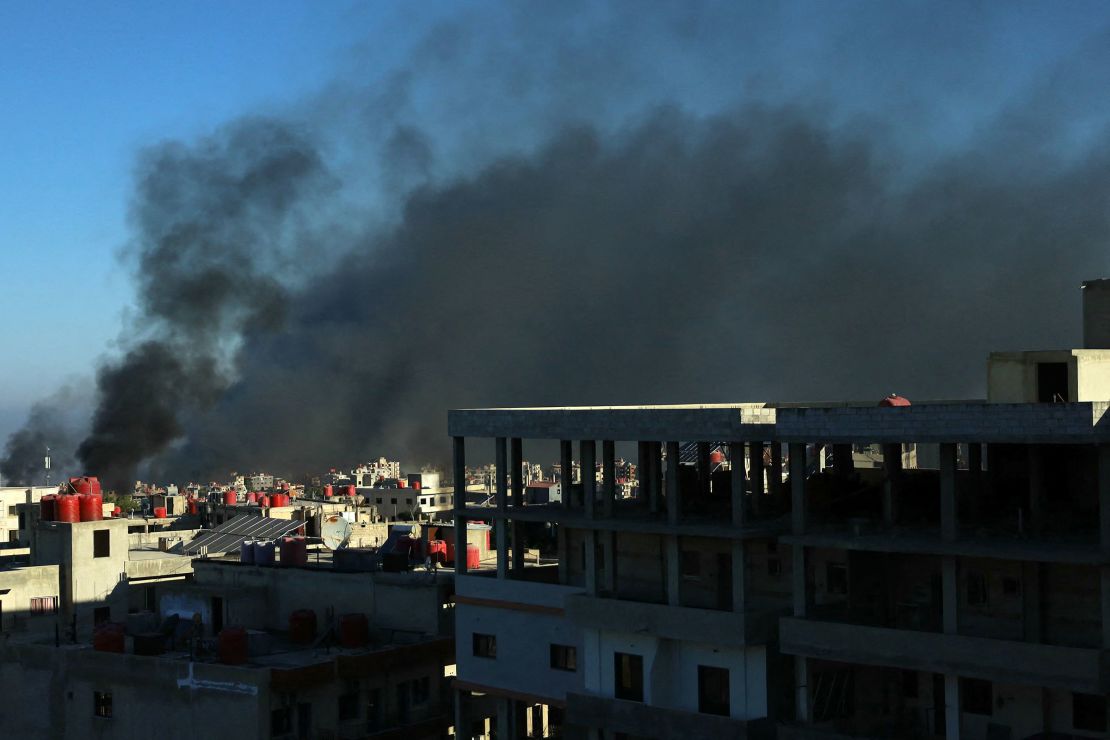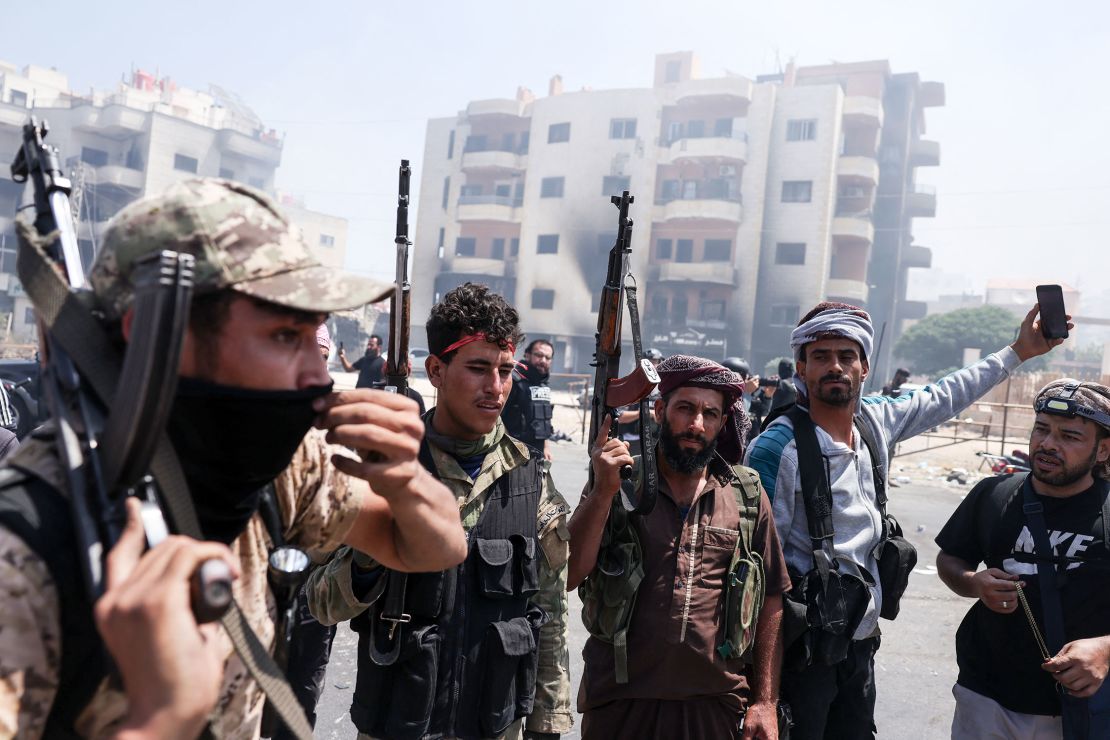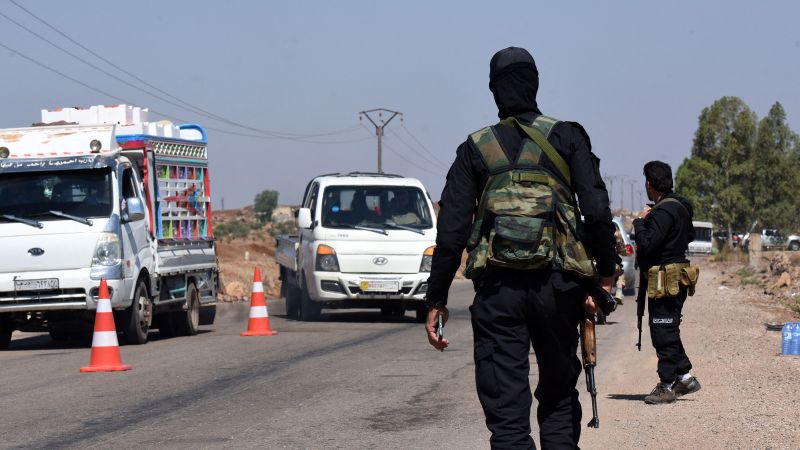CNN
—
Syrian security forces are deploying in the restive province of Suwayda after days of communal fighting in which hundreds of people have been killed, the country’s interior ministry says.
Clashes between Druze groups and Bedouin tribes have continued in Suwayda since last week, threatening the stability of the government in Damascus as it tries to exert control over Syria’s complex and volatile sectarian landscape.
The violence prompted Israel to carry out strikes against Syrian government forces, which it said were to protect the Druze, who are a significant minority in both countries. Israel has also expressed alarm about the new Islamist-led government in Syria despite contacts between the two on ensuring security.
Both Bedouin and Druze groups issued statements indicating they were prepared to accept the ceasefire, but one Druze faction then demanded that Bedouin leave Suwayda
Geolocated video showed continuing clashes in western parts of Suwayda city. Security forces were present in rural areas to the west, but not in the city itself, the scene of the heaviest clashes.
Interior Ministry spokesperson Nour al-Dean Baba said that “Following the bloody events caused by outlaw groups… Internal Security Forces have begun deploying in Suwayda province as part of a national mission with the primary goal of protecting civilians and restoring order.”

A short while later, Syria’s presidency declared what it called an immediate and comprehensive ceasefire in the province, calling on everyone to allow the state “to implement this ceasefire responsibly, ensuring stability and halting the bloodshed.”
In a televised statement Saturday, Syrian President Ahmed al-Sharaa said that events in Suwayda had “marked a dangerous turning point in Syria’s security and political landscape.”
Al-Sharaa also referred to the Israeli airstrikes in Suwayda and Damascus last week, which he said had “reignited tensions, pushing the country into a critical phase that now threatens its stability.”
Referring to Israeli support for some Druze groups in Suwayda, al-Sharaa said that “some figures, emboldened by foreign support, have shown separatist ambitions and led armed groups that committed acts of killing and abuse.”
He again pledged to protect the Druze, who have been wary of his government, and called for national unity.
“Syria is not a playground for separatism or sectarian incitement. Now more than ever, it is essential to return to the path of reason and come together on a unified national foundation,” al Sharaa said.
After US mediation aimed at ending the violence and halting Israeli airstrikes, al-Sharaa thanked the Trump administration for its “commitment to the country’s stability.”
Al-Sharaa’s statement followed the announcement late Friday by the US envoy to Syria, Thomas Barrack, that Syria and Israel had agreed to a new ceasefire in Suwayda.
Geolocated video from the city of Suwayda early Saturday showed columns of dark smoke rising and the sound of sporadic gunfire. But Druze and Bedouin groups indicated they would accept the ceasefire once government forces were deployed.

Bedouin groups represented by the Southern Tribes Gathering said they were declaring “an immediate and comprehensive cessation of all military actions,’ and called for “channels for dialogue and coordination to ensure that what happened does not recur.”
One Druze group heavily involved in the clashes said Saturday that it was ready to accept a ceasefire. The Spiritual Leadership faction, led by Hikmat al-Hijri, said it was renewing a call to “return to our shared humanity.”
But al-Hijri, who had rejected a previous ceasefire, later demanded that Syrian security forces should only be deployed at the border of the province, and called for Bedouin to leave the province altogether.
The Israeli government has insisted that Suwayda should be a demilitarized zone out of bounds to government forces.
But amid the ongoing violence Israel said Friday that it would allow a limited presence of internal security forces to restore order in Suwayda.
On Friday, the Syrian Network for Human Rights said it had documented the deaths of at least 321 people in Suwayda since last Sunday, when clashes began. It said there had been “extrajudicial killings, mutual shelling, as well as airstrikes carried out by Israeli occupation forces.”

